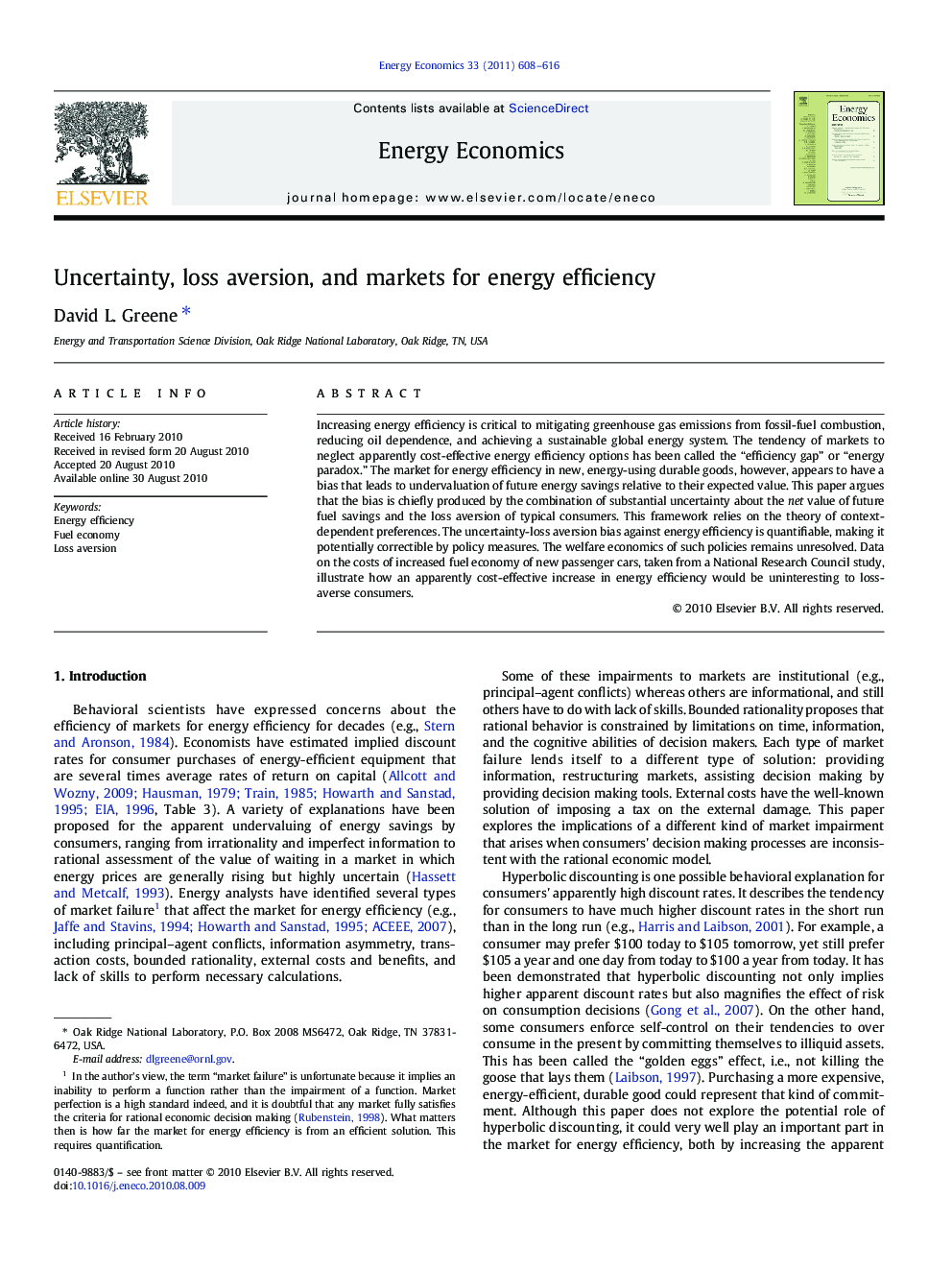| کد مقاله | کد نشریه | سال انتشار | مقاله انگلیسی | نسخه تمام متن |
|---|---|---|---|---|
| 5065077 | 1372303 | 2011 | 9 صفحه PDF | دانلود رایگان |
عنوان انگلیسی مقاله ISI
Uncertainty, loss aversion, and markets for energy efficiency
دانلود مقاله + سفارش ترجمه
دانلود مقاله ISI انگلیسی
رایگان برای ایرانیان
کلمات کلیدی
موضوعات مرتبط
مهندسی و علوم پایه
مهندسی انرژی
انرژی (عمومی)
پیش نمایش صفحه اول مقاله

چکیده انگلیسی
Increasing energy efficiency is critical to mitigating greenhouse gas emissions from fossil-fuel combustion, reducing oil dependence, and achieving a sustainable global energy system. The tendency of markets to neglect apparently cost-effective energy efficiency options has been called the “efficiency gap” or “energy paradox.” The market for energy efficiency in new, energy-using durable goods, however, appears to have a bias that leads to undervaluation of future energy savings relative to their expected value. This paper argues that the bias is chiefly produced by the combination of substantial uncertainty about the net value of future fuel savings and the loss aversion of typical consumers. This framework relies on the theory of context-dependent preferences. The uncertainty-loss aversion bias against energy efficiency is quantifiable, making it potentially correctible by policy measures. The welfare economics of such policies remains unresolved. Data on the costs of increased fuel economy of new passenger cars, taken from a National Research Council study, illustrate how an apparently cost-effective increase in energy efficiency would be uninteresting to loss-averse consumers.
ناشر
Database: Elsevier - ScienceDirect (ساینس دایرکت)
Journal: Energy Economics - Volume 33, Issue 4, July 2011, Pages 608-616
Journal: Energy Economics - Volume 33, Issue 4, July 2011, Pages 608-616
نویسندگان
David L. Greene,